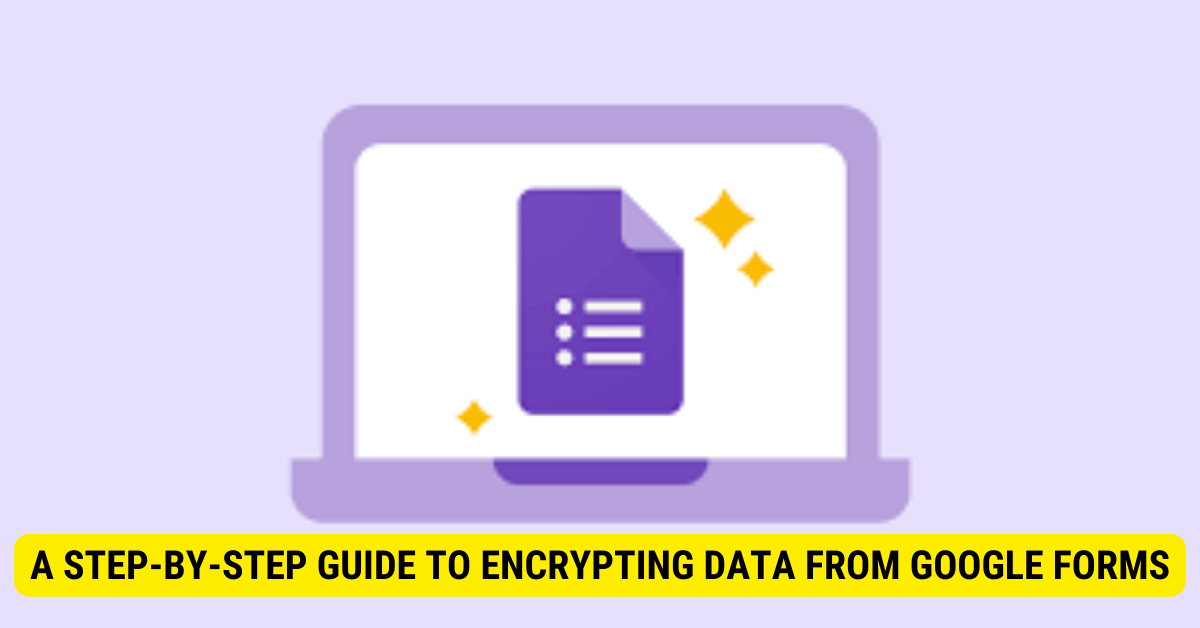Enable encryption by checking the “Encrypt responses” box in Google Forms settings. Generate a unique encryption key and save it securely. Your data will be safely encrypted and protected.
In this digital age, data security is of utmost importance. As the reliance on online forms for data collection increases, ensuring the confidentiality and protection of gathered information becomes critical. Google Forms, a popular tool for creating surveys and questionnaires, offers a convenient way to collect data. However, addressing the inherent data security risks associated with using Google Forms and exploring how encryption can safeguard sensitive information is essential. We will provide an overview of Google Forms and its uses, discuss the necessity of encryption, and guide you through encrypting data from Google Forms.
An Overview of Google Forms and Its Uses
Google Forms, a free online tool by Google, allows users to create surveys and collect data seamlessly. It offers a user-friendly platform to design surveys tailored to specific needs, with customizable themes and various question types. The integration with other Google services, such as Google Sheets, enables real-time data analysis. Additionally, Google Forms promotes efficient teamwork with collaboration features, making it an ideal choice for data collection projects.
The Necessity of Encryption for Google Forms
Encryption is crucial for safeguarding data from unauthorized access. By transforming data into an unreadable format without a decryption key, encryption makes it virtually impossible for hackers to obtain meaningful information. Adding an extra layer of protection to Google Forms significantly reduces the risks of data breaches and unauthorized data access.
A Step-by-Step Guide to Encrypting Data from Google Forms

Follow these steps to ensure your collected data remains protected:
- Create your Google Form with necessary questions and options.
- Under the “Settings” cog icon, select “Responses.”
- Choose the encryption method that suits your needs.
- Enable encryption by checking the “Encrypt responses” box.
- Generate a unique encryption key and save it securely.
- Share the encrypted Google Form with respondents, explaining the encryption process.
- Collect responses as usual, and the encrypted data will be safely stored.
- Whenever you need to view or analyze the data, use the decryption key to unlock the encrypted responses.
How to Protect Sensitive Data from Google Forms?
In addition to encryption, consider these best practices:
- Limit access to the Google Form to authorized individuals only.
- Secure your Google account with a strong password and enable two-factor authentication.
- Regularly monitor responses for any suspicious activity.
- Educate respondents about data privacy and the importance of providing accurate and confidential information.
- Avoid collecting unnecessary personally identifiable information (PII) to minimize the risk of a data breach.
What to Consider When Choosing a Data Encryption System
Selecting the right data encryption system is essential. Consider the following factors:
- The level of encryption: Ensure robust data protection.
- Integration with Google Forms: Choose a system that seamlessly integrates with Google Forms.
- User-friendliness: Opt for an intuitive encryption system for form creators and respondents.
- Compliance with regulations: Ensure the encryption system meets necessary compliance requirements.
- Customer support: Look for reliable customer support in case of issues.
The Benefits of Encrypting Data from Google Forms

Encrypting data offers several advantages:
- Data protection: Sensitive data remains secure and confidential.
- Legal compliance: Data protection and privacy regulations are met.
- Consumer trust: Building trust with your audience by demonstrating commitment to safeguarding their information.
- Enhanced reputation: A strong data security framework enhances your organization’s reputation.
How to Ensure Data Security with Google Forms?

Besides encryption, take these steps to enhance data security:
- Regularly update Google Forms and related apps to leverage the latest security features.
- Monitor and manage access permissions to restrict data access to authorized individuals.
- Train your team on data security best practices.
- Enable detailed auditing and logging to track potential security breaches.
Common Challenges of Encrypting Data from Google Forms
Challenges you may encounter with encryption:
- Technical complexity: Some encryption systems require technical expertise.
- User resistance: End-users may hesitate due to concerns about complexity.
- Compatibility issues: Ensure compatibility with Google Forms through thorough research and testing.
- Key management: Safely store and manage encryption keys to avoid unauthorized decryption or data loss.
Key Takeaways
- Encryption is essential to protect sensitive information from data breaches and unauthorized access.
- Implementing data security best practices enhances the protection of collected data.
- Choosing the right encryption system is crucial for effective data protection.
FAQs
Does Google Forms store responses securely?
Google takes security measures to protect data stored on its servers, but it’s essential to understand that Google Forms’ default storage does not include built-in encryption. Responses are stored in Google Sheets, which should be secured for data privacy.
Can I use Google Workspace (formerly G Suite) encryption for Google Forms?
Google Workspace provides data encryption for its services, including Google Drive (where Google Forms responses are stored). However, this encryption typically focuses on data at rest and in transit within Google’s infrastructure, not end-to-end encryption for specific form responses.
Are there any limitations when using third-party encryption tools with Google Forms?
Third-party encryption tools or add-ons may have limitations or compatibility issues with certain form configurations or features. Always thoroughly test the tool before deploying it to ensure it meets your security requirements.
Conclusion
Encrypting data from Google Forms is vital to protect sensitive information from data breaches and unauthorized access. By following the step-by-step guide and implementing additional data security practices, you can ensure the privacy of your respondents and enhance the security of your data. Remember, data security should always be a top priority, and taking necessary steps will help build trust with your audience in today’s digital landscape.
